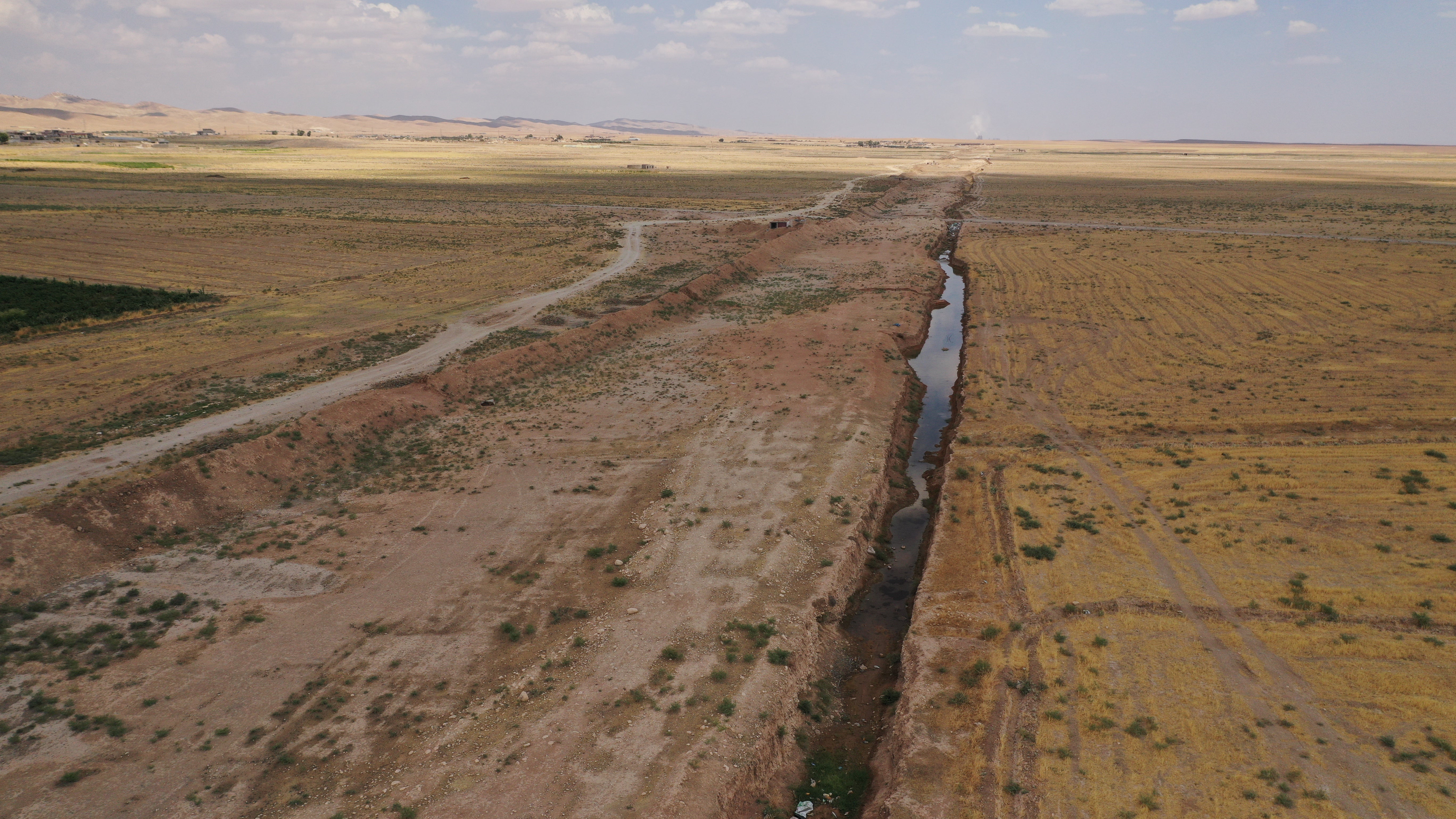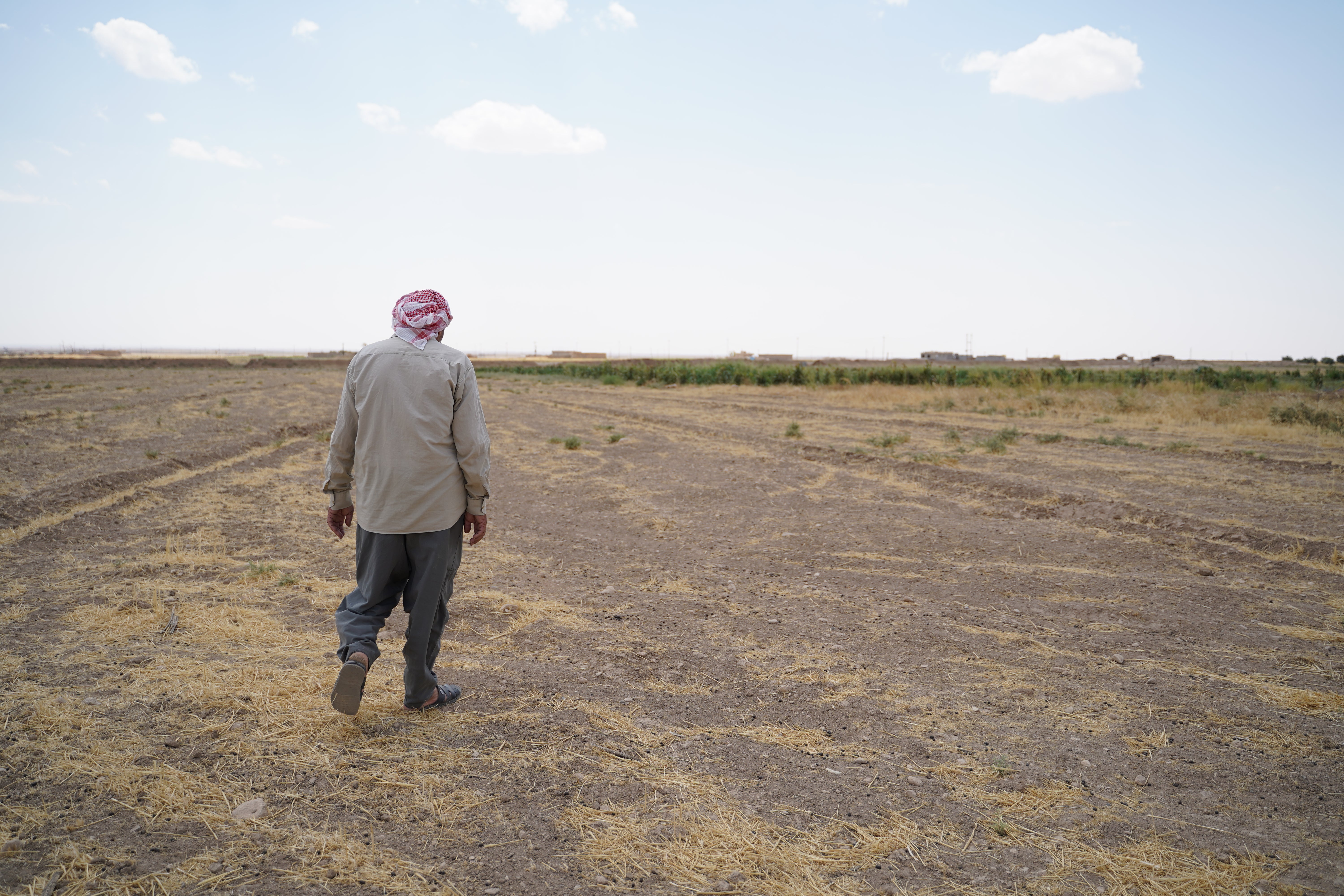Millions in war-torn Syria and Iraq face drought
More than five million people in Syria directly depend on river water

More than 12 million people in Syria and Iraq are losing access to water, food and electricity, 13 aid groups working in the region have warned.
The groups, which includes the Norwegian Refugee Council and War Child, says rising temperatures, record low levels of rainfall, and drought are depriving people of drinking and agricultural water.
The shortage is also disrupting electricity as dams run out of water, which in turn impacts the operations of essential infrastructure including hospitals. Higher temperatures caused by climate change increase the risks and severity of droughts, the aid groups added.
More than five million people in Syria directly depend on river water. Some 400 square kilometres of agricultural land risk total drought. Two dams in northern Syria, serving three million people with electricity, face imminent closure. Communities in Hasakah, Aleppo, Raqqa and Deir ez Zour, including displaced people in camps, have witnessed a rise in outbreaks of water-borne diseases such as diarrhoea since the reduction in water.
In Iraq, the loss of access to water from the river, and drought, threaten at least seven million people. Large swathes of farmland, fisheries, power production, and drinking water sources have been depleted of water.

“The total collapse of water and food production for millions of Syrians and Iraqis is imminent,” said Carsten Hansen, Regional Director for the Norwegian Refugee Council.
“With hundreds of thousands of Iraqis still displaced and many more still fleeing for their lives in Syria, the unfolding water crisis will soon become an unprecedented catastrophe pushing more into displacement.”
CARE’s Regional Director in the Middle East and North Africa, Nirvana Shawky, said: “The situation demands that authorities in the region and donor governments act swiftly to save lives in this latest crisis, that comes on top of conflict, COVID-19 and severe economic decline.
“In the longer term, beyond emergency food and water, they need to invest in sustainable solutions to the water crisis.”
“This year we have witnessed a wave of intense drought and our lands did not produce any crops and we don’t have any sources of drinkable water either, for us or for our animals,” said Abdallah, a tribal leader from Al Sebat in Syria.
“It is infuriating to think that the current conditions will force us to leave the rural areas and that our lands will be left as ruins.”
Many farmers have spent their savings and gone into debt to keep their animals alive.
“Because of the drought I was unable to harvest any wheat,” said Hamid Ali from Baaj, one of the worst affected districts in Ninewa, Iraq.
“Now I am overwhelmed with debt.”
Other aid groups joining today’s warning and call for emergency and flexible funding are: ACTED, Action Against Hunger, Mercy Corps, People in Need, Première Urgence Internationale, War Child, Help, Women Rehabilitation Organisation, VIYAN Organization, and the Al Rakeezeh Foundation for Relief and Development.
Join our commenting forum
Join thought-provoking conversations, follow other Independent readers and see their replies
Comments
Bookmark popover
Removed from bookmarks